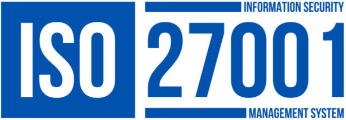The Guardian published Understand your strengths to turn a trainee scheme into a permanent job >>
The jobs market is competitive, and while graduate training programmes offer a foot in the door, securing a permanent position after the scheme has come to an end can prove tricky. Employers expect you to be able to hit the ground running and step into new roles with confidence. This means you need to know what makes you different and how you can use your own unique selling points to contribute value both now and in the future, ultimately maximising your chances of being hired.
Your strengths aren’t necessarily just the things that you are good at; they are what you have the most energy for and what you enjoy the most – an important distinction when we are increasingly spending more time at work. As Steve Jobs once said: “If you don’t love it, if you’re not having fun doing it, you’re going to give up”. Understanding your passions and strengths helps to prevent this.
How can you be at your strongest?
The latest advice for graduates if you want to get noticed and retained is to use your early months to showcase your talents. Look for opportunities to test out different roles to see where your strengths fit best, and build confidence in communicating the value you will bring to the organisation using these strengths.
The benefit to you is clear: when you focus on your strengths and communicate these to others, it is much more likely your employer will keep giving you the kind of work you enjoy. This can create a virtuous cycle which sees you doing more of the work you love, which you then deliver to a higher quality standard, resulting in you getting more of this kind of work to do, as well as making your future position in the organisation more secure.
Four tips to build a stronger profile at work
You need to be able to describe what it is you enjoy doing at work in a way which makes sense to other people, and helps them to see quickly where you could add value to their project, team, or part of the business.
Once you have given a name to your strengths – for example, your stengths may be collaboration, strategic mindedness and results focus – link these outcomes to the organisation values in a very practical way. For example, you could use these strengths to build a cohesive cross-functional work group (collaboration) tackling a tricky issue due to changes in the external environment (strategic mindedness) or delivering recommendations to your management team within three months (results focus).
Advertisement
It is important to stretch yourself in new areas, for example by putting yourself forward for different projects. This way, you can better understand what you really enjoy and where you excel. It also enables you to make better career decisions both now and in the future by picking areas which genuinely play to your strengths. Remember, people often find strengths in unexpected places.
Make sure you weave the strengths language (linked to outcomes) into your interactions with key stakeholders and into any documents that relate to your performance at work. At interviews, describing your abilities and passions will help you to stand out from other candidates. At appraisal time, make sure you describe your successes clearly to your manager. As you enter new project teams, encourage the group to talk about its strengths and lead by describing yours.
How can your employer get the most from your strengths?
Many graduate schemes only focus on technical skills development and do not take sufficient account of personal and leadership development based on strengths – so fly the flag for your organisation to take a strengths focus in your development.
Mentoring and peer coaching is also important to provide graduates with role models, feedback, guidance and support for their development. The best organisations provide this as standard so if yours doesn’t, make some noise.






